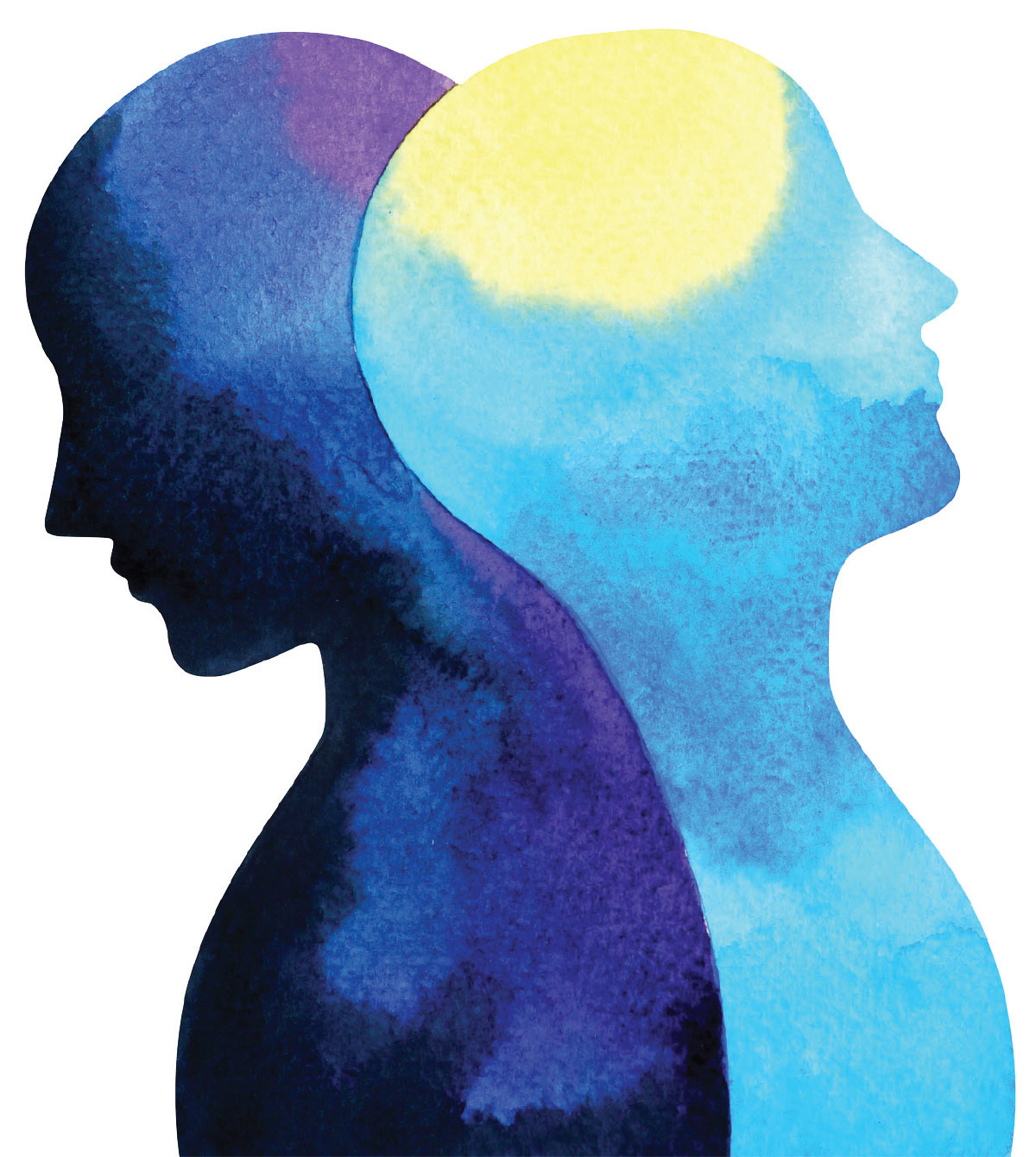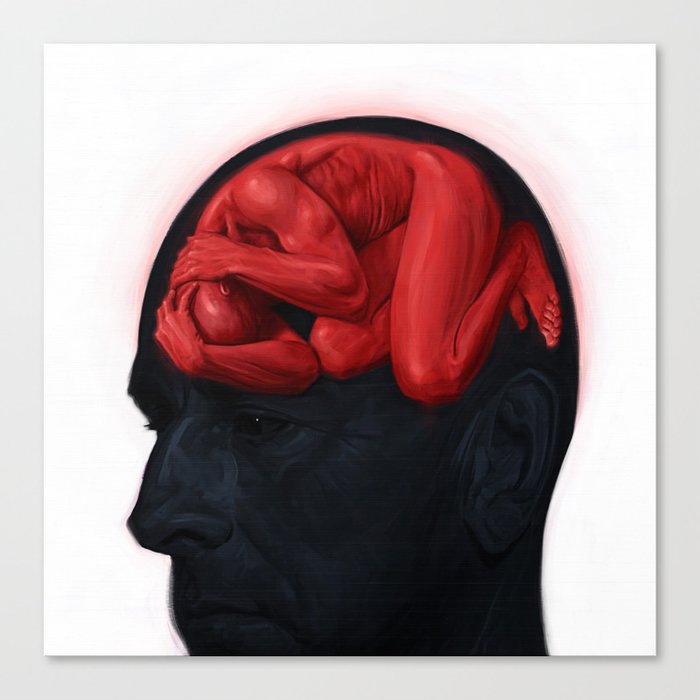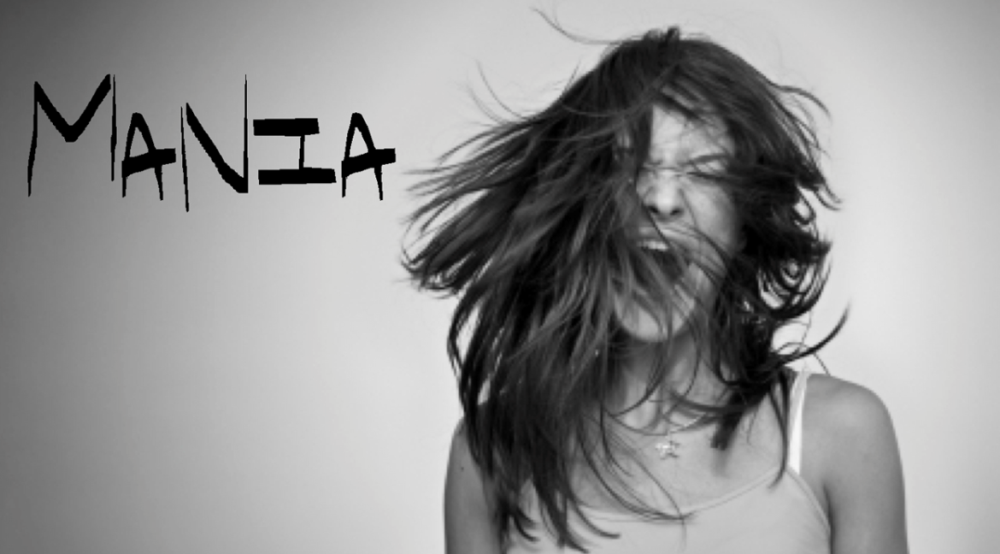BLOG POST 12: The MANIA | BIPOLAR DISORDER
MANIA is an attitude, wherein the patient behaves exactly opposite to how he behaves when in depression. Psychology says, there is no need to have all the symptoms to diagnose or cause MANIA. As the intensity of the mania increases, the symptoms also begin to prevail. MANIAC patients become very excited and enthusiastic. They consider themselves to be very important and reputed people of society, they talk a lot and start imagining about themselves. Due to their enthusiastic behaviour, their speech and pace of working becomes fast than normal. But their behaviour and all activities are not at all related or in co-ordination with the main activity or the subject. And they are also unaware of their changed behaviour.
The symptoms of MANIA and DEPRESSION vary completely with each other. Following ponts distinguish both from each other:
01) Sleepy, drowsy mood, all the time.
02) Lack of enthusiasm, tiredness.
03) Unhappy with oneself, feeling of inferiority.
04) Discouraged mentality at work, at home.
05) Prefer to stay away from family and friends.
06) Lack of sexual feelings or loss of interest in sexual activities.
07) Loose interest in any recreational event.
08) Prefer to seclude themselves and keep thinking about the past .
09) Having Negative thoughts.
10) To have a negative and pessimistic thinking towards the future.
11) Frequent crying due to sad feeling.
MANIA:
01) Lack of sleep, the patient does not feel the need to sleep.
02) Agitated mood all the time.
03) A feeling of self-aggression, over confidence.
04) Excessive enthusiasm in doing work but all in wrong direction. Doing the wrong thing at the wrong time.
05) Keep talking excessively out of context with people.
06) Behaving amusingly with any person.
07) Excessive sexual urge even resulting into violation of the limits of civilization.
08) Forgetting one's own responsibility.
09) Spending lot of money without any accountability.
10) To be overly optimistic about the future, to make big baseless plans out of one’s reach.
11) Laugh out loud meaninglessly on small things or with people, even strangers.
12) Cracking childish Jokes and sometimes suddenly getting angry.
13) Use of excess drugs & alcohol.
14) Hearing voices, seeing people and things that other people can't hear, see or feel.
15) Loosing temper quickly and becoming violent and furious.
In the year 1980, during 3rd division of DSM (Diagnostic & Statistics Manual of Mental Disorders), the term MANIC DEPRESSION got shifted to the term BIPOLAR DISORDER. The term manic led patient to be described as maniac which often made them offensive.
 As the symptoms of MANIA now termed as BIPOLAR DISORDER gets intensified, the patient starts getting disconnected with the real life. The cause of BIPOLAR DISORDER is not yet clear. Research says that a combination of different things can develop this disorder in the patient.Some common reasons are brain chemical imbalance, environmental factors such as stressful life events, childhood abuse and sometimes it can also be genetic. It is less likely in young children, but children aged between 12-13 years can become a victim of this mental state.
As the symptoms of MANIA now termed as BIPOLAR DISORDER gets intensified, the patient starts getting disconnected with the real life. The cause of BIPOLAR DISORDER is not yet clear. Research says that a combination of different things can develop this disorder in the patient.Some common reasons are brain chemical imbalance, environmental factors such as stressful life events, childhood abuse and sometimes it can also be genetic. It is less likely in young children, but children aged between 12-13 years can become a victim of this mental state.In this condition, some patients can also get symptoms of excessive anger. They expect that the people around them, like their office colleagues or the housemates need to listen to them, if anyone objects or interrupts their behaviour, then they may feel offended. In that condition, they can even step up to quit a well settled job without any second thought. In this phase, the sexual urge of the patients can also get intensified. They are not in the mental state of obeying any social bond or courtesy. Such patients do not shy away from having an ex-marital affairs only to satisfy their sexual urge. This may landup them in a lot of trouble and they may face many difficulties in social and family life. In the state of BIPOLAR DISORDER, patients can sink into debt by spending money thoughtlessly.
 Just as a patient suffering from BIPOLAR DISORDER gets excited, the same symptoms of excitement are visible in patient suffering from SCHIZOPHRENIA. That is why in psychology, it is difficult to distinguish between these two mind sets and make a definite diagnosis. Almost same treatment is applicable for both . But the only difference is that, MANIAC patients can be completely cured. And in case if after few years he gets a MANIAC attack, as said earlier, he leads a perfectly fine mental life between his previous MANIAC attack and the new one. But in SCHIZOPHRENIA the patient cannot easily get rid of this disease and it is very difficult for him to lead a normal mental life.. There will definitely be an attempt to give information about awareness about the mood associated with SCHIZOPHRENIA.
Just as a patient suffering from BIPOLAR DISORDER gets excited, the same symptoms of excitement are visible in patient suffering from SCHIZOPHRENIA. That is why in psychology, it is difficult to distinguish between these two mind sets and make a definite diagnosis. Almost same treatment is applicable for both . But the only difference is that, MANIAC patients can be completely cured. And in case if after few years he gets a MANIAC attack, as said earlier, he leads a perfectly fine mental life between his previous MANIAC attack and the new one. But in SCHIZOPHRENIA the patient cannot easily get rid of this disease and it is very difficult for him to lead a normal mental life.. There will definitely be an attempt to give information about awareness about the mood associated with SCHIZOPHRENIA.
Like every mental illness, treatment of BIPOLAR DISORDER can take a long time. In this, the patient and family may have to be very restrained. If the patient has to be cured, then it is necessary to accept this disease first, only then he can emerge from this disease with the right treatment.
For blog related suggestions and comments, please select one of the three options:
01) Email at koonalblogs@gmail.com.
02) In the comment box located on the blog, comment as option, just enter your name in the Name / URL.
03) In the comment box on the blog, comment as option, select the Anonymous option.
Keep reading to gain information and awareness about Schizophrenia in the next blog titled The SCHIZOPHRENIA.Till then stay safe and healthy, MENTALLY & PHYSICALLY 😊.
- (KD Blogs)



Comments
Post a Comment